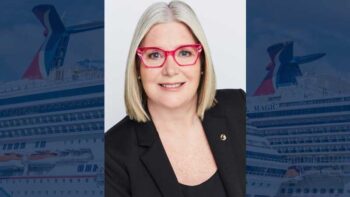
HX (Hurtigruten Expeditions) announced that it has set a new sustainability benchmark in Antarctica for the 2023-2024 season, donating over 1,100 cruise nights to researchers and supporting more than 20 projects. HX anticipates guests will contribute 16,000+ data submissions through its Science & Education Program.
"It's been almost 130 years since HX pioneered expedition cruising. With this history, we have a profound responsibility to safeguard the places we explore," says HX Chief Scientist Dr. Meraldi, the cruise industry's first on-staff Chief Scientist. Since 2018, HX's Science & Education Program, a first in the cruise industry, has forged partnerships with some of the world's leading science institutions. "Beyond minimizing our footprint, it is our duty to leave these places better than we found them," adds Dr. Meraldi.
More Cabins, More Research
This season, HX has booked 1,158 cruise nights for third-party researchers in Antarctica, marking the highest number of cabins donated by the expedition cruise line. "Scientists spend weeks onboard conducting research, often alongside our curious guests who are eager to understand the ecosystems they're exploring," adds Dr. Meraldi.
By year-end, HX will have provided over 1,500 cabins to researchers across its global itineraries spanning 30+ countries.
Record Support for 20+ Projects
HX will also support more than 20 research projects and as many as eight Citizen Science initiatives. Researchers collaborate closely with HX's expedition team, fostering guest education through lectures, demonstrations, and real-time data analysis in HX's cutting-edge Science Centers.
The 2023-2024 Antarctica Science Program projects include drone-based whale research, penguin colony monitoring, and baleen whale population studies. A new project, part of HX's ongoing collaboration with the California Ocean Alliance, will study Humpback whale bubble net feeding behaviour.
Since 2019, HX's Science & Education Program has facilitated the publication of 17 scientific reports and papers. Findings have contributed data to the scientific community and supported research at UNIS, SCRIPPS Institution of Oceanography, Oceanites, Institute for Marine Research, University in Tromsø, and California Ocean Alliance.
More information on HX's website.





